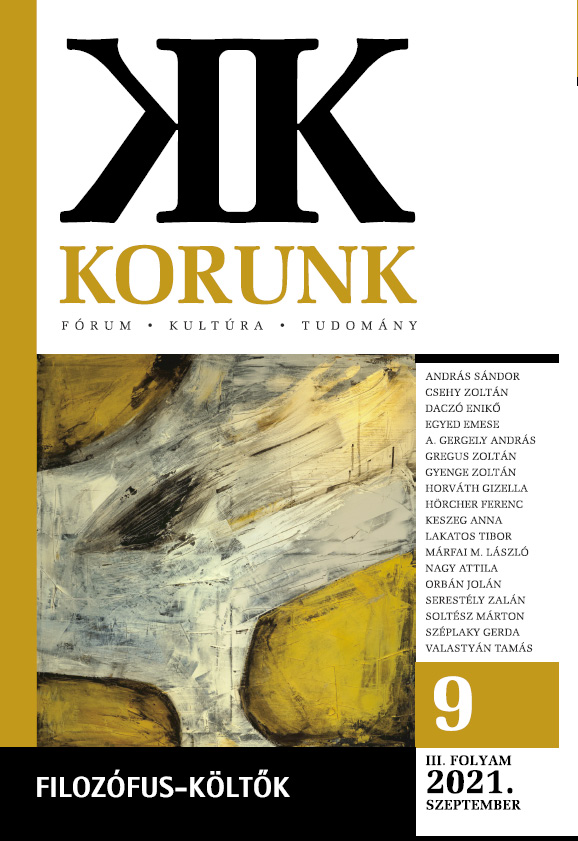Nem-jelenvalólét. Egy költő filozófiai alapvetése az Énről
Non-Dasein: The Philosophical Foundations of a Poet
Author(s): Gerda SzéplakySubject(s): Theory of Literature
Published by: Korunk Baráti Társaság
Keywords: death; non-existence; non-Dasein; living present; disappearance; trace; remembrance; oblivion; absence
Summary/Abstract: Two years after Dezsõ Tandori’s death in 2019, his poem titled tandori light turned up, in which he wrote in advance what it will mean to not exist anymore. The poem presents the necessary occurrence of his own death as the fulfilment of the non-existence of the Self. However, even in his first volume, this non-existence was not assumed by the poet as something that would come with death, on the contrary, it appeared from the beginning as an inherent abyss of the Self, and presence as a mere “trace element”. In his late poem, Tandori himself refers to his very first volume, titled Töredék Hamletnek, in which he illustrated in a particularly concentrated way what it means to be non-present, as opposed to the well-known Heideggerian definition. In my essay, I analyse the poems of the first volume, along which I examine the questions of the living present, disappearance, leaving a trace, and remembrance. It is in the light of these that I arrive at the assertion of the Self, constantly forgetting about itself, which can be equalled with absence. Absence for Tandori is not nothing, but an expression of God’s absence within us. For man, his own existence is formulated above all as separation from God, as an irrevocable knowledge of God’s absence.
Journal: Korunk
- Issue Year: 2021
- Issue No: 09
- Page Range: 36-47
- Page Count: 13
- Language: Hungarian

